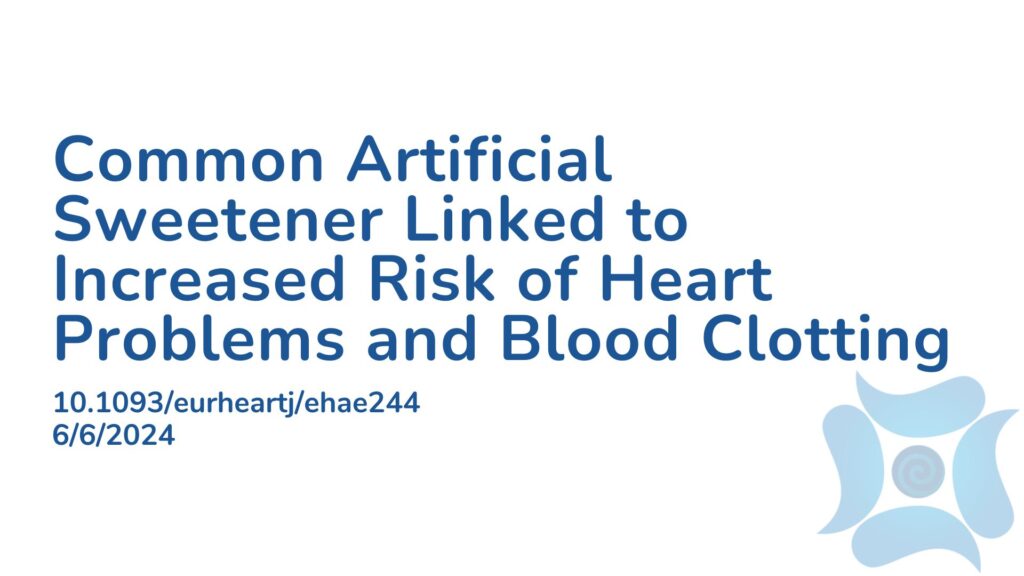Summary:
Artificial sweeteners are a controversial topic at the moment, with some literature exposing their links to poor long-term health outcomes, and others disputing this conclusion. Artificial sweeteners are low-calorie sugar substitutes used in processed foods, and their sweetness is said to be 1000 times that of sugar, requiring much less to be used. This study looked at blood samples from people undergoing heart check-ups to see how xylitol, a common artificial sweetener, affects heart health. The researchers analyzed samples from 1,157 people and then confirmed their findings with 2,149 more people. The paper also assessed how xylitol affects blood clotting using human blood and animal tests and tested its effects on healthy volunteers. The results showed that higher levels of xylitol in the blood were linked to a higher risk of major heart problems over three years. Further tests confirmed this link specifically to xylitol. Xylitol was also shown to increase blood clotting activity in lab and animal studies. When the participants drank a xylitol-sweetened drink, their blood showed increased clotting activity. The authors therefore concluded that xylitol is linked to a higher risk of heart problems and increases blood clotting.
Abstract:
Background and Aims: The pathways and metabolites that contribute to residual cardiovascular disease risks are unclear. Low-calorie sweeteners are widely used sugar substitutes in processed foods with presumed health benefits. Many low-calorie sweeteners are sugar alcohols that also are produced endogenously, albeit at levels over 1000-fold lower than observed following consumption as a sugar substitute. Methods: Untargeted metabolomics studies were performed on overnight fasting plasma samples in a discovery cohort (n = 1157) of sequential stable subjects undergoing elective diagnostic cardiac evaluations; subsequent stable isotope dilution liquid chromatography tandem mass spectrometry (LC-MS/MS) analyses were performed on an independent, non-overlapping validation cohort (n = 2149). Complementary isolated human platelet, platelet-rich plasma, whole blood, and animal model studies examined the effect of xylitol on platelet responsiveness and thrombus formation in vivo. Finally, an intervention study was performed to assess the effects of xylitol consumption on platelet function in healthy volunteers (n = 10). Results: In initial untargeted metabolomics studies (discovery cohort), circulating levels of a polyol tentatively assigned as xylitol were associated with incident (3-year) major adverse cardiovascular event (MACE) risk. Subsequent stable isotope dilution LC-MS/MS analyses (validation cohort) specific for xylitol (and not its structural isomers) confirmed its association with incident MACE risk [third vs. first tertile adjusted hazard ratio (95% confidence interval), 1.57 (1.12–2.21), P < .01]. Complementary mechanistic studies showed xylitol-enhanced multiple indices of platelet reactivity and in vivo thrombosis formation at levels observed in fasting plasma. In interventional studies, consumption of a xylitol-sweetened drink markedly raised plasma levels and enhanced multiple functional measures of platelet responsiveness in all subjects. Conclusions: Xylitol is associated with incident MACE risk. Moreover, xylitol both enhanced platelet reactivity and thrombosis potential in vivo. Further studies examining the cardiovascular safety of xylitol are warranted.
Article Publication Date: 6/6/2024
DOI: 10.1093/eurheartj/ehae244



